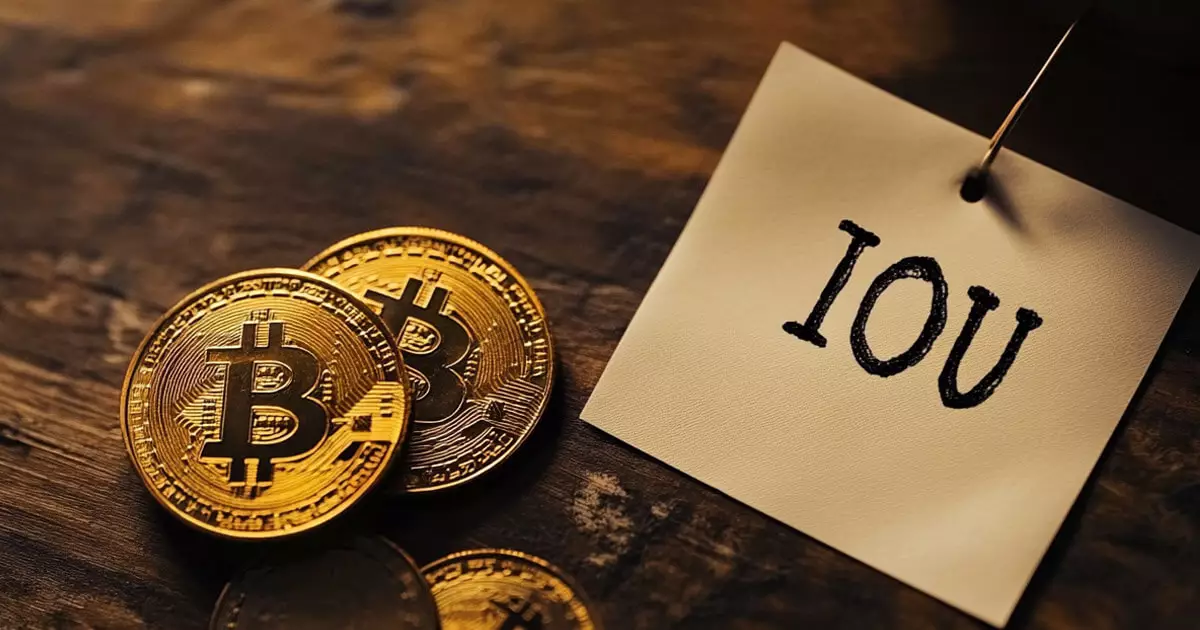The cryptocurrency landscape has seen its share of controversies, and the latest involves Coinbase, a major player in the marketplace, and its relationship with BlackRock’s Bitcoin exchange-traded fund (ETF). Recent allegations have cast doubt on whether Coinbase genuinely uses the funds provided by BlackRock to acquire real Bitcoins. As these rumors gained traction on social media, they sparked significant debate within the crypto community, leading to discussions about trust, regulation, and the nature of asset management in the digital currency space.
On September 16, speculation emerged that Coinbase was issuing letters of debt instead of utilizing BlackRock’s capital for Bitcoin transactions. Proponents of this theory accused the exchange of manipulating Bitcoin’s price by not holding actual BTC as claimed. This conjecture was quickly dismissed by Eric Balchunas, a senior ETF analyst at Bloomberg, who refuted the allegations as outlandish. He emphasized that BlackRock is a reputable institution that takes compliance seriously and would not tolerate any misconduct by its partners.
Critics often look for reasons to justify their sentiments, especially when financial instruments like cryptocurrencies seem to be performing poorly. The persistent downward trend in Bitcoin’s value since March has left many investors on edge and eager to pinpoint responsibility. Balchunas poignantly expressed that instead of blaming ETFs or outside factors, Bitcoin investors should consider their own decision-making processes. Such sentiments reflect a broader disconnect in the crypto community, where skepticism towards institutional involvement is ever-present.
In response to the allegations, Coinbase’s CEO, Brian Armstrong, sought to clarify the operational mechanics behind the ETF-related transactions. He pointed out that all transactions, including mints and burns of ETFs in custody, are ultimately settled on-chain. Armstrong asserts that institutional clients have options for executing trades off-chain, which can involve over-the-counter (OTC) transactions before they are settled in Coinbase Prime vaults. The fact that these internal processes are kept discreet is partly why some critics may feel inclined to speculate on the presence of dubious operations.
Armstrong did not disclose specific information about the institutional clients’ addresses, emphasizing that anonymity is crucial for maintaining transactional integrity. It is imperative for exchanges to foster a sense of trust as institutional investments flow into Bitcoin, and such transparency is vital in maintaining investor confidence and mitigating undue speculation.
Amidst these discussions, the introduction of cbBTC, a synthetic Bitcoin product from Coinbase, quickly became a focal point of criticism. Following its launch, cbBTC saw its market cap surge past $100 million, yet this rapid ascension attracted skepticism. Tron founder Justin Sun voiced concerns about the absence of proof of reserves, suggesting that users’ balances could be frozen by the government — painting cbBTC as a representational failure of Bitcoin itself.
Sun’s comments resonate with a sector of the crypto community that feels increasing unease about centralized entities controlling what many believe should be decentralized currencies. Critics labeled cbBTC as a “paper” version of Bitcoin, echoing prior tensions seen with gold ETFs, where traditional investors were skeptical of the real value behind such financial products. As these voices echoed through digital channels, calls for transparency and accountability in cryptocurrency finance echoed loudly.
Ultimately, the fracas surrounding Coinbase calls into question a fundamental issue in the cryptocurrency industry: the balance between trust in centralized institutions and the skepticism that permeates the community. While products like Bitcoin ETFs can help establish cryptocurrency as a legitimate asset class, they can also ignite fears of manipulation and loss of the original decentralized ethos.
In a sector that prides itself on its rebellious stance against traditional finance, any sign that old-world tactics are creeping back in can trigger swift backlash. Both Coinbase and BlackRock are incredibly serious about their reputation, and the rumors circulating must be met with clarity and transparent communication. The ongoing dialogues will shape not just the future of Coinbase and its products, but also contribute to the larger narrative governing institutional involvement in the cryptocurrency world. As the industry continues to evolve, its capacity for self-regulation, transparency, and consumer trust will ultimately determine its trajectory.


Leave a Reply